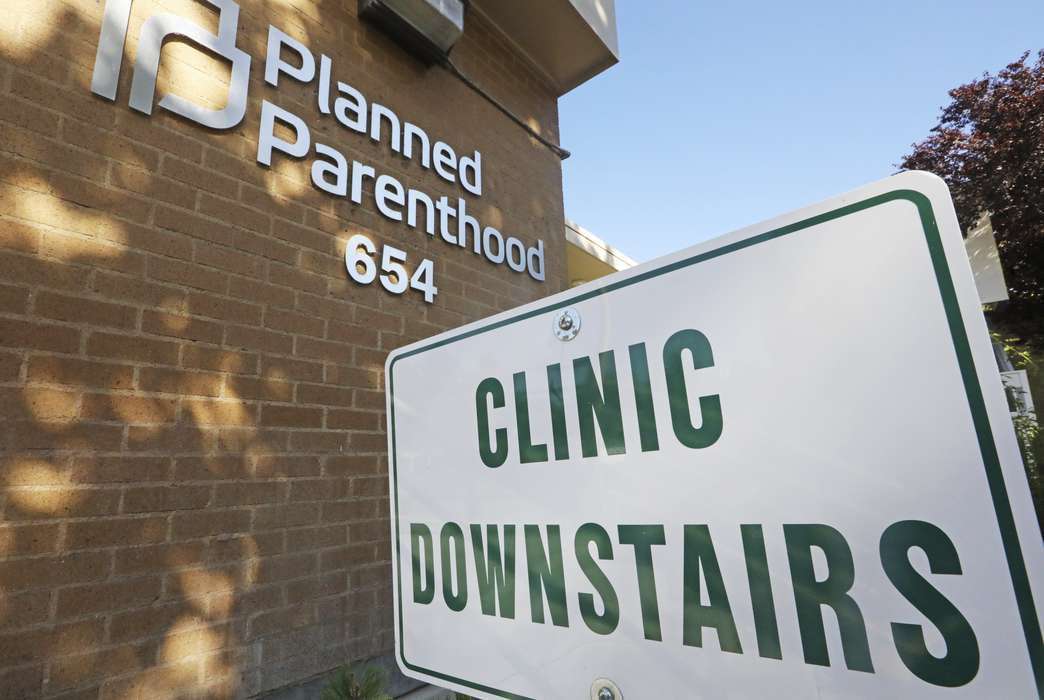A pair of recently published studies quantify the barriers to accessing abortions that state lawmakers across the U.S. have established in recent years, in what one researcher described as a “death by a thousand cuts” for reproductive health care.
As detailed in a research letter published Feb. 22 in the Journal of the American Medical Association, researchers found that in the three years and 11 months between January 2017 and November 2020, state legislatures enacted 227 laws restricting abortion access in 35 states.
Meanwhile, a Feb. 18 study in the American Journal of Preventive Medicine found that the number of laws restricting medication abortions — the non-invasive “abortion pill,” which is highly effective in the first 11 weeks of pregnancy and which the Food and Drug Administration says a pregnant person can safely take at home without a follow-up exam — went from 16 in 2000 to 96 by December 2018.
“It's almost this Swiss cheese effect, where you've got layers and layers upon layers of layers of different restrictions that, cumulatively, make it increasingly difficult to access these health services,” said Phillip M. Singer, an assistant professor of political science at the University of Utah and a co-author of the JAMA letter who also referred to the restrictions as a "death by a thousand cuts" for abortion rights.
While 35 states created more hurdles to getting reproductive care during the Trump Administration period Singer looked at, only 12 states and Washington, D.C., put laws in place protecting abortion services.
The letter's lead author, Eoin B. Gaj, an M.D. candidate at the University of Utah, kept having to expand the way he was coding the data as he reviewed the profusion of legislation.
“At one point, I had about 90 different categories of different types of restrictions that were being enacted," Gaj told The Academic Times. He was surprised to learn that some states required 24/7 emergency lines at every abortion provider; and he became aware of lawmakers’ innovations in impeding insurance. In 2018, for example, Wisconsin barred health insurance for public employees from covering abortion except for pregnancies that would severely endanger the mother, or pregnancies that resulted from rape or incest.
“It really seemed to me like a concerted effort to restrict it from every single angle possible,” Gaj said.
Sarah J. Tomlinson, an attorney and a health policy doctoral student at Temple University and the author of the paper focusing on medication abortions, pointed out that, as the Pew Research Center has found, 61% of Americans think abortion should be legal in most or all cases.
“There is a tremendous gap between what the majority of American people want and what the science says, and what our policymakers are actually doing,” she told The Academic Times.
Tomlinson looked at medication abortion in part because patients do not need to physically go to a provider's office to get this kind of care — unless state law requires them to do so. Because there’s no need to travel to a provider, expanding access to medication abortions can help underserved, low-income and rural populations in particular, she said. Conversely, restricting access disproportionately harms those populations.
“Perhaps if more people were familiar with those effects, they might agree that the resources currently expended upon regulating and restricting abortion access would be better spent directed toward minimizing the need for the service to begin with, i.e. preventing unintended pregnancies or better supporting women and families faced with them,” Tomlinson said.
Gaj said in the U.S., "There's a thought that because there was a precedent set by Roe v. Wade, that's the law, and there's pretty equal access throughout the country."
"But by cataloguing and recording all of these individual laws," he said, "You just see really how there is this huge patchwork from one state to the next. Your access is largely going to be determined by where you live, and then, furthermore, it'll be determined by what sort of resources you have."
Gaj said that while rights politicians have duked it out at the federal level, states have been ramping up their own restrictive legislation, with much of it escaping public notice.
"So much [attention] gets focused on the national level, but the state level has so much impact on people's everyday lives and what access people actually have," he said.
The study, “Access Denied: The Proliferation of American Medical Abortion Laws, 2000−2018,” published Feb. 18 in the American Journal of Preventive Medicine, was authored by Satah J. Tomlinson, Temple University. The research letter, “State Legislation Related to Abortion Services, January 2017 to November 2020,” published Feb. 22 in the Journal of the American Medical Association, was authored by Eoin B. Gaj, Jessica N. Sanders and Phillip M. Singer, University of Utah.

Yashema on March 5th, 2021 at 23:31 UTC »
The current abortion laws are very popular according to polling:
*Edit: I also meant to link this in depth gallup survey, that had this question:
It really is a vocal minority on the Right that keeps this issue at the forefront.
Skipperdogs on March 5th, 2021 at 23:11 UTC »
I would respect and understand their beliefs if I didn't see them cutting child care, early education, health care, food stamps and every other thing that's necessary for a baby. I believe in my heart that torture is worse than death. It's better to prevent a birth if the alternative is a miserable abusive life from poverty to prison. If you care about babies, prove it.
2midgetsinalongcoat on March 5th, 2021 at 21:55 UTC »
These people are not doing things in the interest of the people they serve.
They do things to line their own coffers.